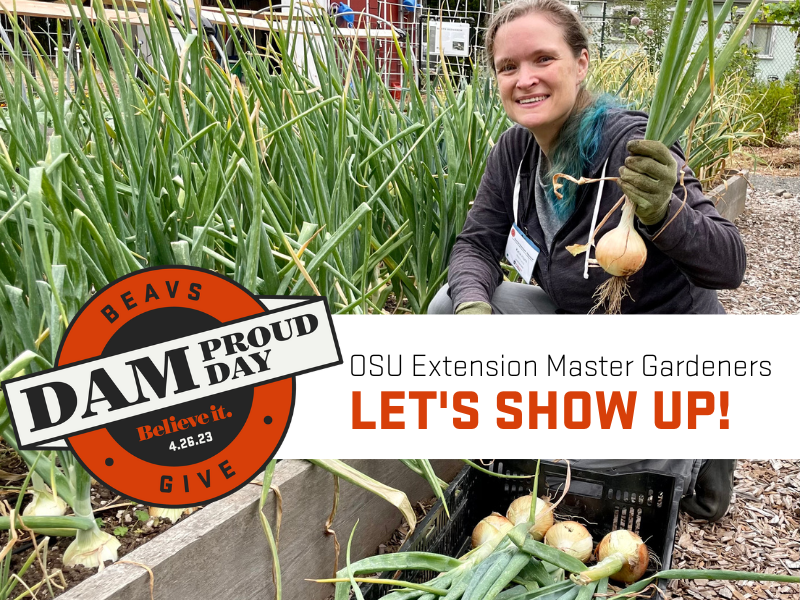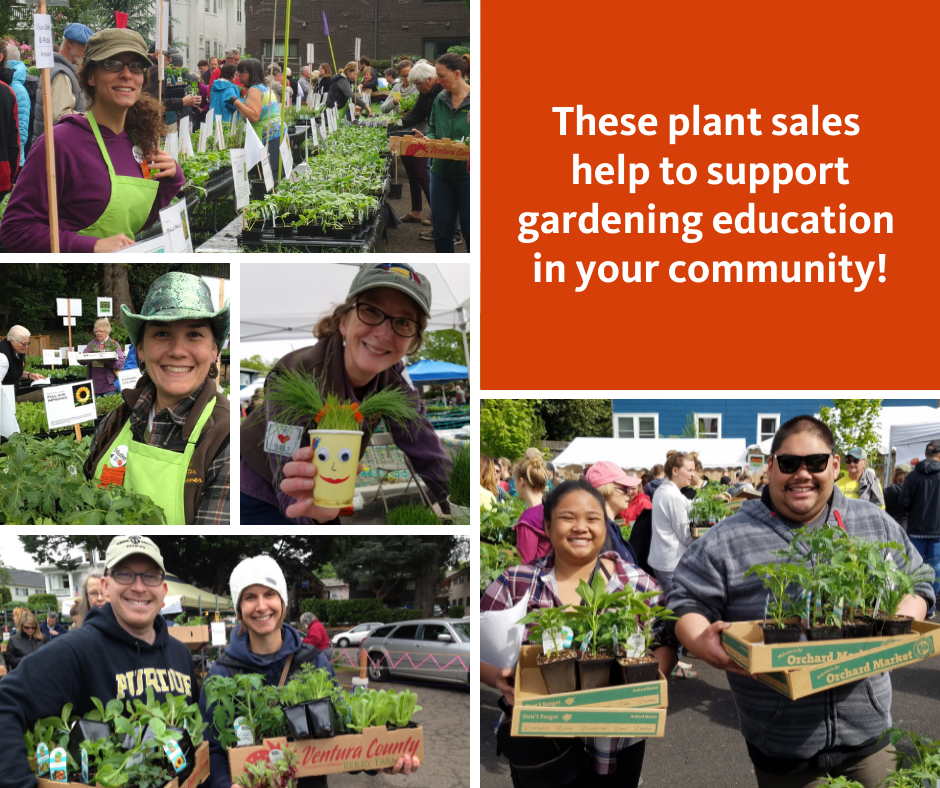Developing Best Management Practices for Master Gardener Plant Sales
The Master Gardener Best management practices task force met via conference call, last week. Our task force include Master Gardener volunteers who coordinate their Master Gardener Association plant sale, and have also operated a commercial nursery. The task force also includes the Oregon Department of Agriculture’s invasive species response coordinator, myself (as statewide Master Gardener Program coordinator), and Brooke Edmunds (as county MG faculty). Prior to working for OSU, Brooke worked with the Oregon Department Plant Health group, where part of her work involved certification of nursery plants. Thus, we have a lot of expertise in the group.
We will soon be surveying plant sale coordinators, to find out:
- do you apply for an ODA temporary nursery license?
- where do you get your plants for MG plant sales?
- how and where are they propagated?
- what are your concerns regarding changes to plant sale guidelines?
The goal of the survey is to get a general sense of what Master Gardener Associations are currently doing, to identify key areas of risk for invasive species introduction, and to provide guidance on how to transition to lower risk activities. Please keep an eye out for the survey, and share with your plant sale coordinators, when available.
We are also developing a draft list of best management practices for Master Gardener Plant sales, in cooperation with our Extension colleagues, volunteers, and nursery industry professionals. In the next 4-6 weeks, we expect to share this list of practices, as well as case studies of Master Gardener Associations that have successfully transitioned from higher risk to lower risk plant sale activities.
Please stay tuned!
Food Safety for Master Gardener Tasting Events (i.e. Tomato Tasting)
A question recently came in about how to approach an event such as a tomato tasting, to ensure safe food handling and food safety. I consulted with Jeanne Brandt, statewide coordinator of the OSU Extension Master Food Preserver Program, to get her feedback. Below is her response (edited for brevity).
My understanding is that sharing samples is part of educational programming, not food service, so that site or event licenses and food handler’s permits are not required. Those come into play when any products are sold. Providing samples for educational purposes is included in liability coverage offered by OSU, as long as best practices are used to prepare them. We put out a sign that says “Products made/prepared by volunteers in our classroom or home kitchens.” This makes booth visitors aware of where the products came from and that they are not commercial, so they can choose to sample or not.
This resource has guidance for handling produce samples at public events:
https://www.fcs.uga.edu/docs/13_Keeping_Food_Safe_at_Market.pdf
Page 3 has some good guidelines for preparing samples.
Best practices are good hygiene, clean produce, and protection from contamination by the customers. That’s not as easy as it sounds, since we are often places without handwashing stations. Setting up individual samples so that customers can’t handle more than their own sample is ideal.
Clients with Biting Bug Infestations, Without an Apparent Cause
Every now and then, a client comes into the Extension office, wanting advice for how to deal with insects that are biting them, or that have infested their house. After some conversation, or time to examine the sample that the client has brought into the office, you may determine that the client might be feeling a sensation on their skin, but that it is not due to an insect or mite issue. How do you help these clients? The cases are often heartbreaking: a client desperate for relief, with no apparent cause or solution in sight. Colleagues in extension published an excellent article on this topic, a few years ago, that includes a long list of recommendations for working with clients who believe their body and/or environment is infested with insects or mites, despite evidence to the contrary. Please read, and share with your Master Gardener volunteers, as needed.
Kerr et al. 2014. Recommendations for extension professionals and volunteers regarding individuals with delusional infestation. Journal of the NACAA 7(2).



